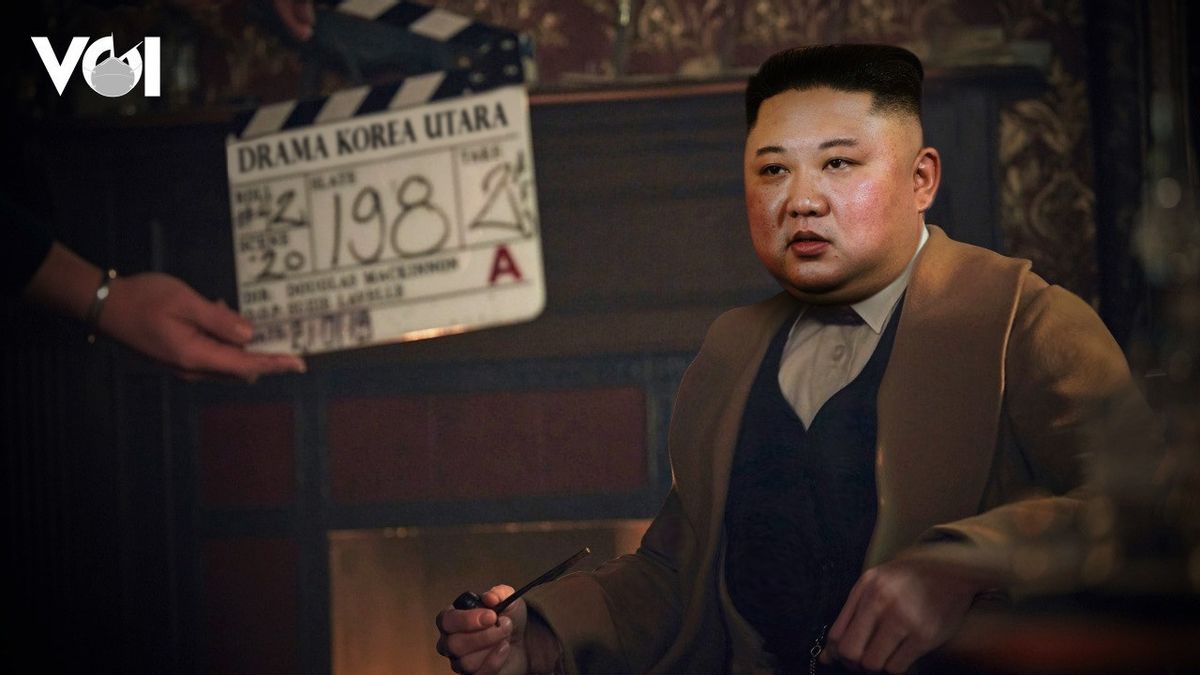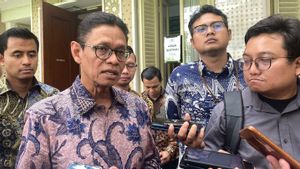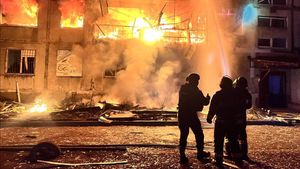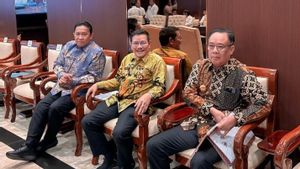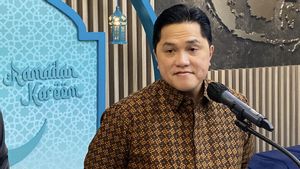We have explored how the pandemic has prompted many people to watch Korean dramas through "Welcome to You New Audience for Pandemic Force Drakor". The pandemic also brought many people to explore the audiovisual industry in South Korea. Part of VOI's signature Series Writing, "Korean Drama Invasion". Now is the time for us to look next door, how is the audiovisual industry in North Korea? What is the passion of North Korean cinema which is said to be full of propaganda and contains the story of the kidnapping of a South Korean director, Shin Sang-ok in it?
The fact that North Korea is the most closed country in the world is perhaps obvious. But what about the film? Not many know what films from this totalitarian country are like. In fact, North Korea also has a passion for modern films. Because of the great desire, North Korea was once involved in the kidnapping of a South Korean director named Shin Sang-ok. Shin was kidnapped to help North Korea develop their film production. We will discuss the whole story in this article, including the thick propaganda in North Korean films.
Throughout the 2000s, North Korea regularly held a film festival entitled Udine Far Easet Film Festival. The festival is filled with screenings of North Korean films. Several titles were screened, including the 1987 film A Broad Bellflower and Myself in the Distant Future (1997).
As reviewed by SCMP, the two films were considered aimed at propagating North Korean citizens to change their diet. This is called a response to the threat of starvation that can tear down a country. In addition, both titles are considered propaganda aimed at encouraging North Koreans to work hard to develop a new type of tractor fuel.
And of course, in the end, the film ordered the audience to bow and praise the first great leaders, Kim Il-sung and his son Kim Jong-il. The drama Myself in the Distant Future directed by Jang In-hak is a direct propaganda type film.
The moving image tells of a young man from Pyongyang who falls in love with a project leader who is busy building their village. This man tries to win over his heart by becoming a model worker and hopes to bring this girl back to Pyongyang with him. But the woman didn't want to.
The moral of the story is that one must love the land of his birth, even though life there is less pleasant. This film was made at a time when the North Korean government was trying to prevent a wave of urbanization. Even though a female character said every girl wanted to go to Pyongyang, she still chose to stay in the village. And this woman continues to work to build a poor village.
The film also contains another message to illustrate how abundant food is in North Korea. This is reflected in the scene of a farmer harvesting corn with abundant yields. Around him, it seemed that everyone was carrying a bag full of ripe apples.
Another well-known drama from North Korea entitled Hong Kil Dong, was made in 1986. This drama is similar to the story of Robin Hood. However, the North Korean version. The main character is Hong, a nobleman who starts an attack on a greedy landowner and a rice hoarder. However, when a group of ninja from Japan invaded their country, Hong turned into a nationalist and teamed up with his enemies to fight the Japanese invasion.
We can still mention many other North Korean film titles that have caught the attention of many people. For example, Ten Zan: The Ultimate Mission. This film comes in a futuristic action genre. Or The Flower Girl, a film written directly by North Korean leader Kim Jong-il. The most important work in North Korean film history is Pulgasari. The film is even touted as the blueprint for modern North Korean films. Pulgasari is often called the 'Godzilla' of North Korea.
Meanwhile, the first North Korean film was born in 1494, only one year after the Democratic People's Republic of Korea was founded. The title of the film is My Home Village, directed by Kang Hong-sik. The film tells the despair of poor Korean land and full of exploitation by landlords until the end of the Japanese occupation (1910-1945).
The best North Korean films are born to South Korean peopleRegardless of what people perceive North Korean film and its propaganda, it is clear that the country is led by a film buff. Kim Jong-il is said to have a special interest in developing North Korean films. After all, hasn't propaganda been part of the film itself for a long time?
Kim Jong-il's attention to film can be seen since his reign. During his reign, Kim Jong-il ensured that the North Korean film industry was not underfunded during the 1970-1980s. However, lately he is not satisfied with the quality of films made by his nation.
In fact, he was so ambitious that Kim Jong-il ordered the kidnapping of an international caliber director from South Korea, Shin Sang-ok in 1978. Shin's ex-wife, actor Choi Eun-hee was also kidnapped. During the confinement, they were ordered to film a regime order.

The author of the book North Korean Cinema: A History (2012), Johannes Schonherr, explains that Shin is a director and producer who has made 74 films during his 52 years of activity. Shin, said Schonherr, is an international director who has collaborated with filmmakers from many countries, such as the United States, Hong Kong, Japan, including in his own country of birth, South Korea.
Shin's expertise makes it possible to make films with good entertainment and production value in North Korea. "Shin can take the old formula of North Korean propaganda and turn it into a great film," said Schonherr, quoted by the BBC.
It worked, indeed. Shin successfully changed the quality of North Korean cinema. North Korean films just got better under his auspices. One of Shin's most popular films is Runaway, an action film that ends with a train explosion. Apart from Runaway, Pulgasari, a North Korean monster film - as explained earlier - is also Shin's work.
Despite being kidnapped in 1978, Shin only started film production from 1983 to 1986. In that short span of time, he directed seven films and supervised 13 other film productions.
In another of his writings, The North Korean Films of Shin Sang-ok, Schonherr explained that there was a lot of speculation about how he ended up being kidnapped to North Korea. It is equally mysterious when he suddenly defected and fled North Korea on a business trip to Vienna in 1986.
Schonherr explained that Shin's claims that he had defected after being kidnapped and forced to make a film were in doubt. The reason is, without a kidnapping story, let alone filming in South Korea, he would not even be allowed to set foot there. He would instead be punished by the South Korean regime at that time for helping their enemy.
Regardless of whether the story about Shin's kidnapping is true or not, it is certain that he has produced some of his best works there. "He introduced a lot of new concepts and ideas to the North Korean film industry. And he managed to solve many challenges," said Schonherr.
Follow the Writing of this edition of Series: Deepening the Korean Drama Invasion: Government Support and Strategy for Industry Players
The English, Chinese, Japanese, Arabic, and French versions are automatically generated by the AI. So there may still be inaccuracies in translating, please always see Indonesian as our main language. (system supported by DigitalSiber.id)
